Search Results
Showing results 21 to 40 of 43

Get Moving! Active Play Indoors and Outdoors
Source Institutions
In this activity, learners explore the importance of active play.
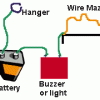
Motor Learning
Source Institutions
In this activity (26th on the page), learners construct an easy-to-build device and test motor learning.

The Carbon Cycle: How It Works
Source Institutions
In this game, learners walk through an imaginary Carbon Cycle and explore the ways in which carbon is stored in reservoirs and the processes that transport the carbon atom from one location to another

Work Up An Appetite
Source Institutions
In this activity, learners participate in fun movement activities while playing on a giant game board. Use this activity to get learners involved in physical activity.

Reaction Time
Source Institutions
In this activity, learners explore reaction time and challenge themselves to improve their coordination. Do you want to move faster? Catch that ball that you never seem to see in time?

Neuron Chain Tag
Source Institutions
In this outdoor activity, learners play a game of Tag to discover how neurons attach themselves to each other to form a chain.
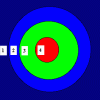
Drop IT!: Depth Perception
Source Institutions
These two activities (4th on the page) demonstrate the importance of two eyes in judging depth.

Hunger Signals
Source Institutions
This game explores the different reasons we choose to eat, and helps us be aware of when our body needs food and when it does not.

Smell Match
Source Institutions
In this matching activity (3rd activity on the page), learners use their sense of smell to match pairs of opaque containers filled with various smelly items like orange peel, roses, or moth balls.
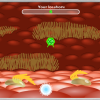
Virus Lander
Source Institutions
Can you avoid the body's immune system and make someone sick? Play this online game in which you go inside a human body to explore how viruses attack cells in the body.

Line Up: Using Math To Stand In Line
Source Institutions
Put math of measurement into lining up — and make waiting in line fun. Choose a size characteristic that learners can physically compare, such as foot length or hair length.

Tug-of-War
Source Institutions
This activity (on page 2 of the PDF under SciGirls Activity: Tug O' War) is a full inquiry investigation into tug-of-war physics. Groups of learners will test two tug-of-war strategies.

Zap!
Source Institutions
This online game tests reaction time. The learner controls a computer-generated frog, and must press a button as soon as a fly appears on the game's radar screen or can be heard from the speaker.
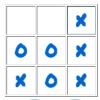
Tic-Tac-Toe
Source Institutions
In this online version of the classic paper and pencil game, learners practice looking ahead to anticipate an opponent's move.
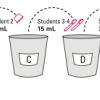
A System of Transport
Source Institutions
In this activity about the human heart (on page 5 of the PDF), learners work in teams to simulate the volume of blood moved through the circulatory system by transferring liquid into--and through--a s
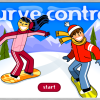
Curve Control
Source Institutions
In this online game, learners must keep their snowboarding racer in the middle of the course without veering off track or hitting obstacles.

Cool It
Source Institutions
In this outdoor activity/game, learners use thermometers to simulate how lizards survive in habitats with extreme temperatures.

Artificial Intelligence: The Intelligent Piece of Paper
Source Institutions
This activity explores what it means for a computer to be intelligent and introduces the topic of what a computer program is and how everything computers do simply involves following instructions writ

What's the Risk?
Source Institutions
To discover the risk and protective factors involved in substance addiction, learners play a game of chance to determine whether a fictitious child is likely or unlikely to abuse drugs.

Eyewitness Game
Source Institutions
In this demonstration (9th on the page), learners explore eyewitness memory and how memories differ amongst individuals. While the rest of the group is minding their own business (i.e.
